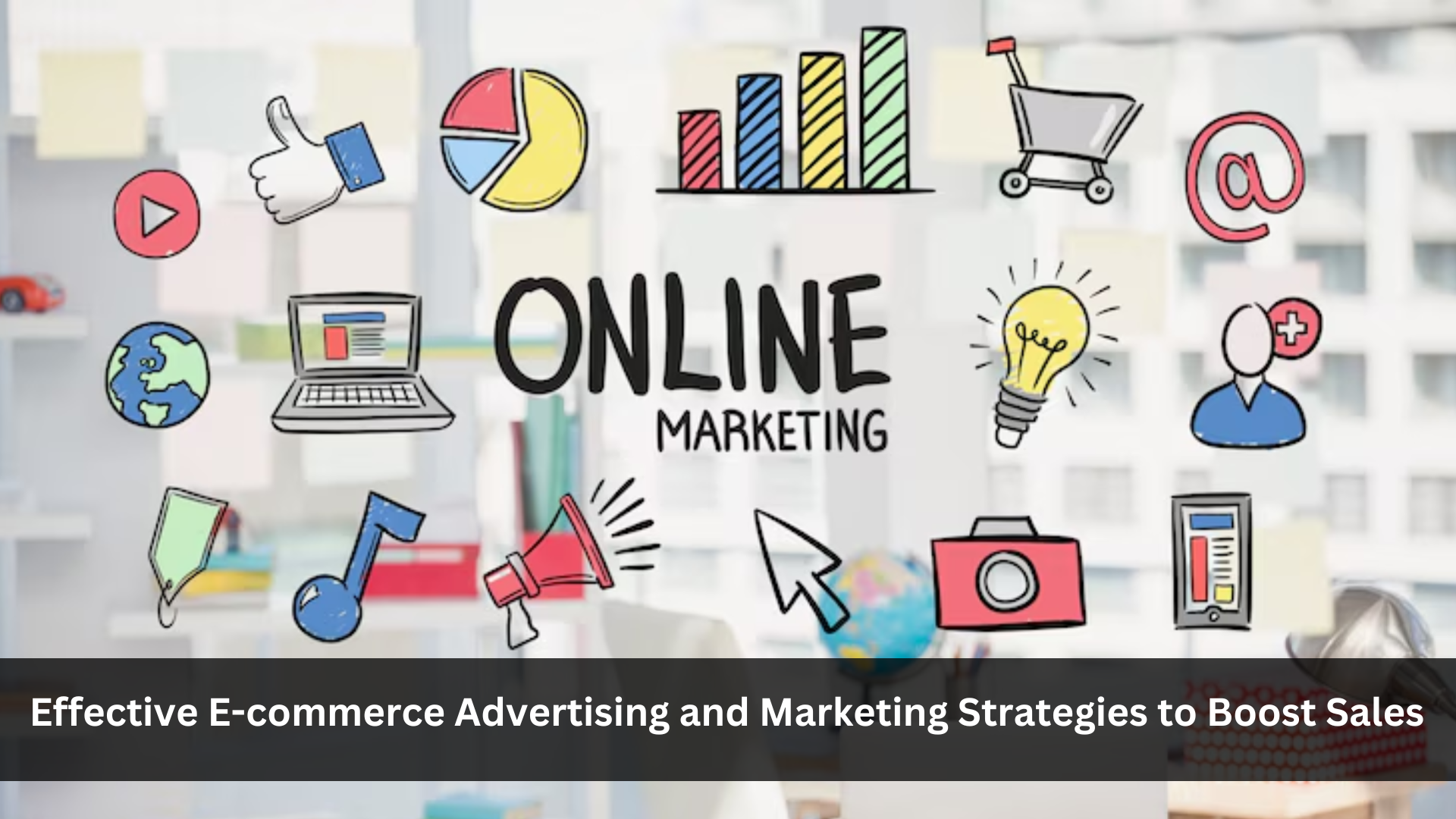In the rapidly evolving world of online shopping, effective e-commerce advertising and marketing strategies are vital for standing out in a crowded marketplace. With millions of brands vying for consumer attention, developing a comprehensive plan that resonates with your target audience can mean the difference between success and obscurity.
In this article, we will explore various e-commerce advertising and marketing strategies that can help elevate your online business.
Why E-commerce Marketing Strategies Matters
1. Increased Visibility: The online marketplace is vast, and standing out is crucial. Effective marketing strategies help increase your brand’s visibility and attract potential customers.
2. Building Customer Relationships: Marketing allows you to engage with customers, understand their needs, and build long-term relationships that drive repeat purchases.
3. Driving Traffic and Conversions: Effective advertising strategies can drive qualified traffic to your website, increasing the likelihood of conversions and sales.
4. Staying Competitive: In the e-commerce landscape, brands must adapt to changing consumer behaviors and market trends. A solid marketing strategy helps keep you competitive.
Explore The E-commerce Marketing Strategies
1. Search Engine Optimization (SEO)
SEO is essential for improving your online store’s visibility on search engines. By optimizing your site for relevant keywords, you can attract organic traffic and reduce reliance on paid advertising.
SEO Strategies for E-commerce
- Keyword Optimization: Research and integrate relevant keywords into product descriptions, meta tags, and URLs.
- High-Quality Content: Create valuable content, such as blog posts or buying guides, that provides information and attracts backlinks.
- Technical SEO: Ensure your website loads quickly, is mobile-friendly, and has a clear site structure.
2. Email Marketing
Email marketing remains one of the most effective channels for e-commerce businesses. It allows you to communicate directly with your customers, nurture leads, and drive repeat sales.
Effective Email Marketing Techniques:
- Segmentation: Segment your email list based on customer behavior, demographics, or purchase history to deliver personalized content.
- Automation: Utilize automation tools to send targeted emails, such as abandoned cart reminders or post-purchase follow-ups.
- Compelling Offers: Use promotional offers, discounts, or exclusive content to encourage recipients to take action.
3. Content Marketing
Content marketing focuses on creating valuable content that attracts and engages your target audience. It can drive organic traffic, establish your brand as an authority, and nurture customer relationships.
Types of Content to Consider:
- Blog Posts: Write informative articles related to your products or industry that can improve SEO and provide value to customers.
- Videos: Create product demonstrations, tutorials, or behind-the-scenes content to engage visual learners.
- Infographics: Use infographics to present complex information in an easily digestible format, driving shares and backlinks.
4. Customer Reviews and Testimonials
Social proof is a powerful marketing tool. Positive customer reviews and testimonials can significantly influence potential buyers’ decisions.
How to Encourage Reviews:
- Follow-Up Emails: Send automated emails requesting reviews after a purchase.
- Incentives: Offer discounts or rewards for customers who leave reviews.
- Highlight Reviews: Showcase testimonials prominently on your website and product pages.
How To Measure E-Commerce Sucess
To ensure that your advertising and marketing strategies are effective, it’s essential to track and measure key performance indicators (KPIs). Some important metrics to consider include:
- Traffic Sources: Understand where your traffic is coming from (organic search, paid ads, social media, etc.).
- Conversion Rate: Monitor the percentage of visitors who complete a purchase.
- Customer Acquisition Cost (CAC): Calculate how much you spend to acquire each customer through various marketing channels.
- Return on Advertising Spend (ROAS): Measure the revenue generated for every dollar spent on advertising.
Conclusion
In the competitive world of e-commerce, effective advertising and marketing strategies are crucial for driving traffic, engaging customers, and increasing sales. By implementing a combination of PPC, social media advertising, influencer marketing, SEO, email marketing, content marketing, and leveraging customer reviews, you can build a strong online presence that attracts and retains customers.
At K2 Rakings Tech, we provide a team if professionals who have great expertise in e-commerce marketing strategies. Visit our official website to know more.

